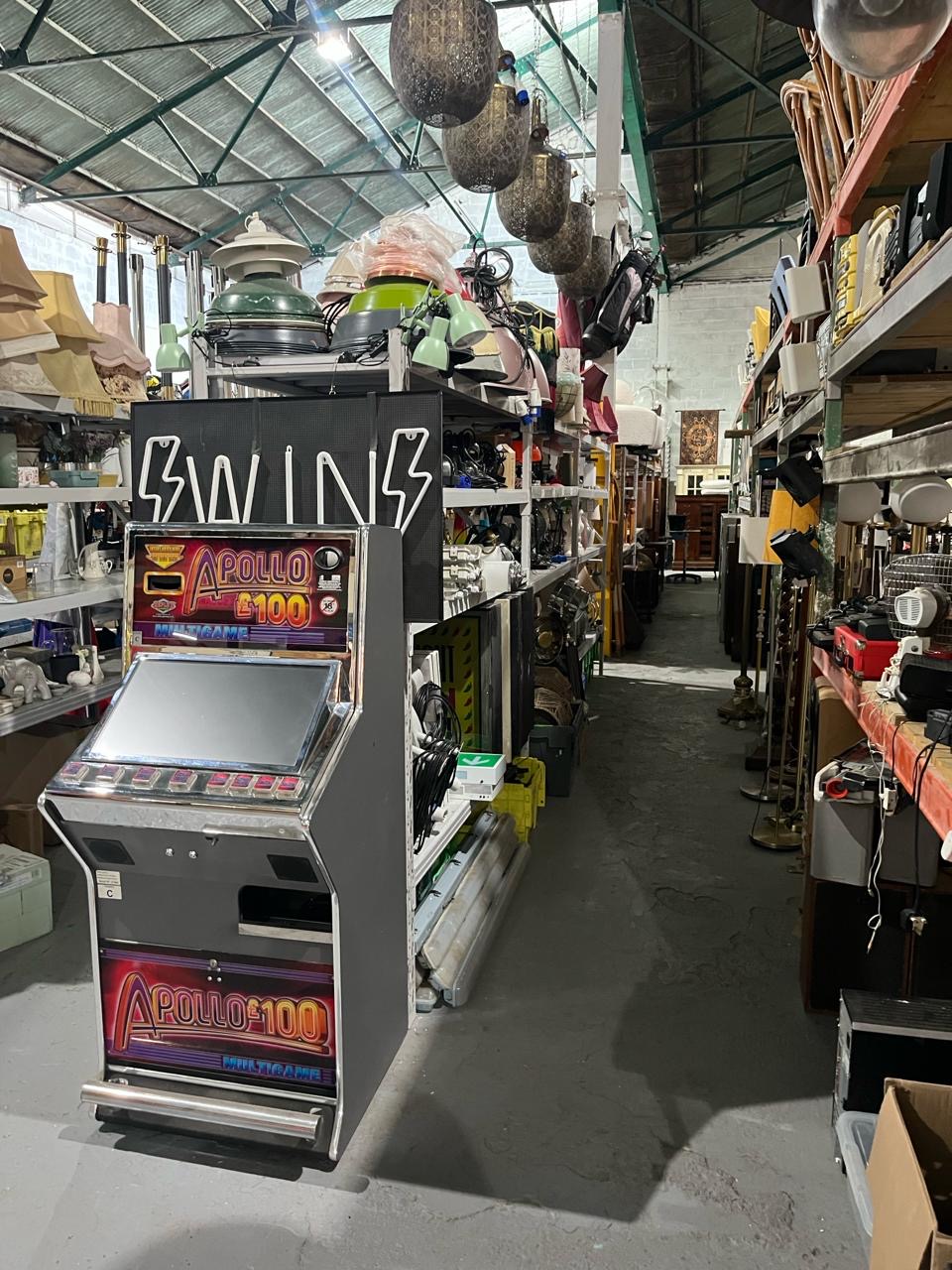
Features
Sefton libraries where you can grow veg as well as borrow a book
3 months ago
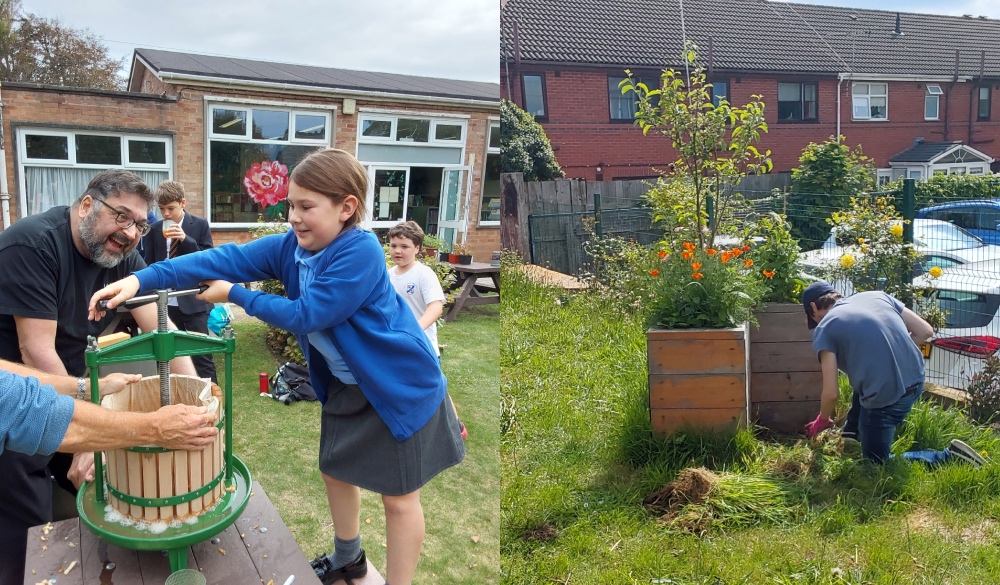
Sefton libraries are going ‘beyond the book’ to offer more than the chance to get your hands on the latest thriller or romantic read.
In their own gripping ‘plot’ twist, three libraries – Formby, Bootle and Crosby – now have their own thriving community gardens, so people can help to grow veg or pick up a potato when they pop in to select their latest James Patterson or Richard Osman.
It’s all part of a plan not just to make the libraries more viable, as many across the country are forced to close, but to make them a valuable centre of activity and support for those they serve.
“We talk about going ‘beyond the book’, and the book will always be an important part of the library service, and more so these days when people can’t afford to buy books and they can come in and borrow them, and especially for children. It’s vital children are reading and accessing books,” says Lesley Davies, senior development manager – communities for Sefton Library & information Service. “And that’s not just about teaching them to read, but about that bonding experience of parents and children when they share a book.
“But it’s also about making libraries viable and important hubs for the community.”
Each garden is maintained by dedicated gardening clubs with library staff and volunteers who meet regularly to nurture the space and plan for the seasons ahead, and every one has its own charm and unique activity including a kitchen garden where produce is used to create meals together and active bee hives that produce honey.
The oldest and most established garden is at Formby Library, which was developed around 10 years ago with financial support from the village’s parish council and the library service itself.
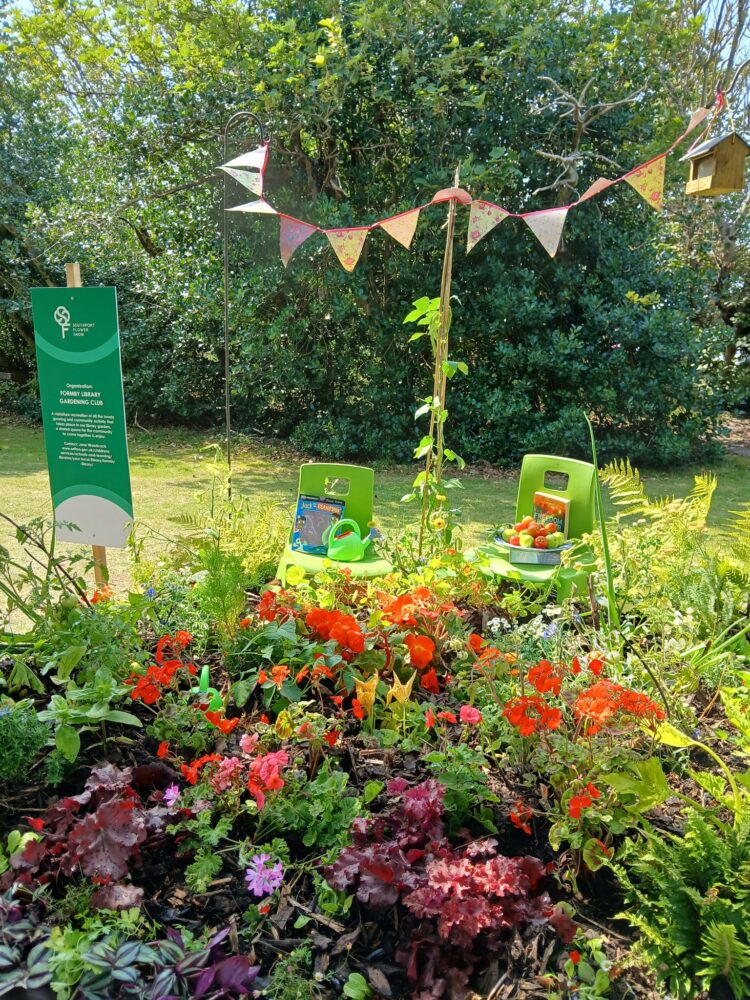
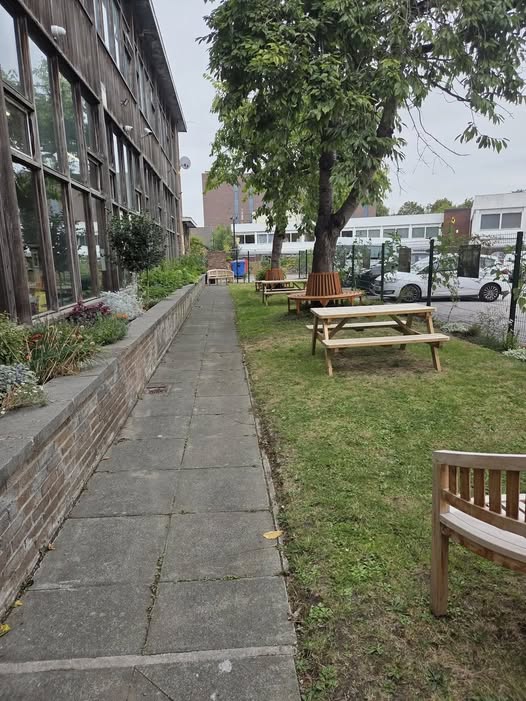
Lesley explains:
“We had a field at the back of the library that wasn’t used and when we were redeveloping the library we wanted to open the children’s library up into that space and so, at first, it was a story garden and where people could go and work.
“Over time it’s become so much more than that.
“It was the first library in the UK to have its own apiary, working with local beekeeper Andrea Ku. That drew more people into the garden. Andrea did beekeeping courses and our staff were trained to monitor the bees on a weekly basis, and it built from there.
“We got more money from the parish council, and we started a gardening club who began to grow vegetables.
“We started to share the vegetables with the local community as they’d grown them – we grow basic veg, potatoes, carrots, tomatoes, cabbages, etc., stuff that people can use – and we started seed sharing as well. The honey is for sale every autumn.
“For the last two years, the gardening club at Formby Library has taken a community garden at Southport Flower Show. We have a couple of members of staff, Jane and Hannah, who support the gardening club and it runs throughout the summer, and in the autumn they have an apple pressing to close the garden and people bring their apples and make juice.
“Through the winter they plan for what they are going to do next year.”
Formby’s success planted the seed to establish similar gardens within the region.
Bootle Library developed some waste ground thanks to grants from Arts Council England and the National Lottery, building French doors to access the space from the building, and with design help from artist Harun Morisson.
“Again we have a small group of volunteers who come in weekly during the summer and work with a member of library staff, Rikki, to grow some vegetables and make it nice, and we have a sentinel bee hive that we work with Andrea on. The sentinel hive is very important because it is so close to the docks that the Environmental Agency monitors that hive to check for any diseases coming through, so that’s really useful.
“The garden’s used for all sorts of things. We’ve had picnics there, story time, an open mic session where local youngsters came and sang, but it’s the weekly gardening session that draws people in.
“The vegetables are used in a community lunch we have at Bootle; we created a kitchen library – also known as the Chopping Club – where people come in and cook together, they might go on a foraging walk together and use what’s grown in the garden to make meals.”
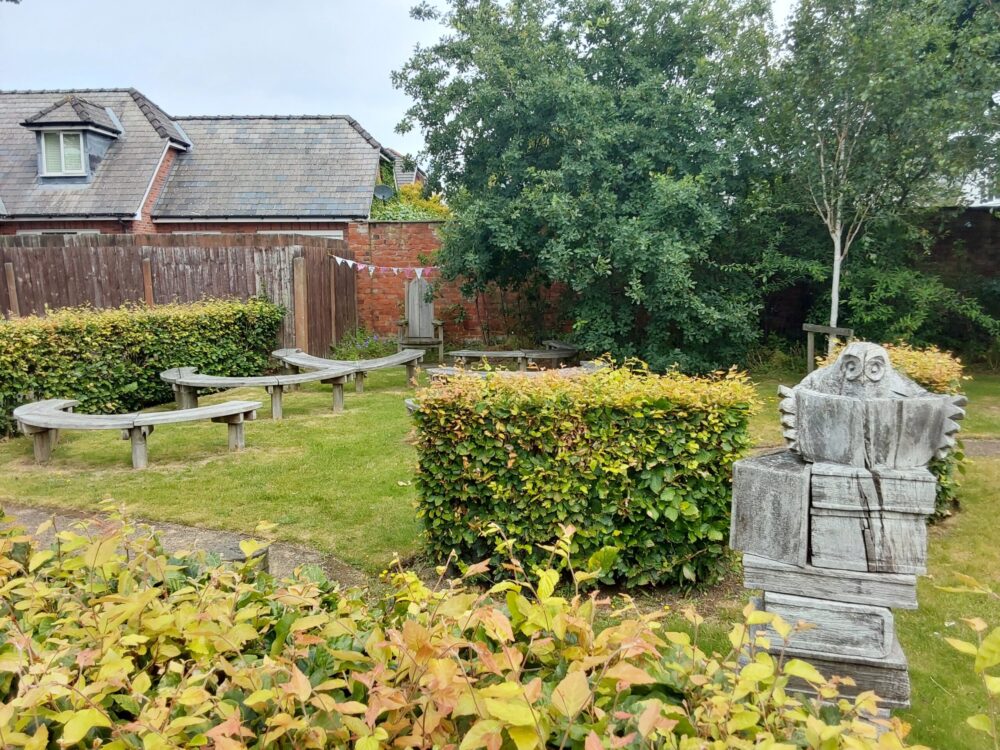
Crosby Library’s garden was started late last year using £5,000 from the Libraries’ Microgrant Fund. Staff members Erin and Gordon wanted to improve the unused planters in the library, and set up a gardening club, extending it to a small piece of land at the rear.
“Again volunteers come in and work the garden with them. We don’t have a Chopping Club at Crosby Library, but any vegetables that we harvest are left at the counter and people can take them if they want to. We had a lot of tomatoes, so we did a little pickling session and made some green tomato chutney.”
Lesley says:
“We are very lucky that we are an Arts Council-funded library service and we have what we call a National Portfolio Organisation funding a strand of programming called At The Library to support activities in the community.
“The gardening clubs are part of that.
“Gardening is so good for people’s mental health, working outside and having a chat while you tend the space and being at one with nature. It’s multi layered.
“It’s practical use of the space, it’s providing some food for people, but the support for people with poor mental health is huge, especially as other services are stretched. We are finding, more and more, that people are looking for a connection in their community, and we are proud to say that we can offer that.”





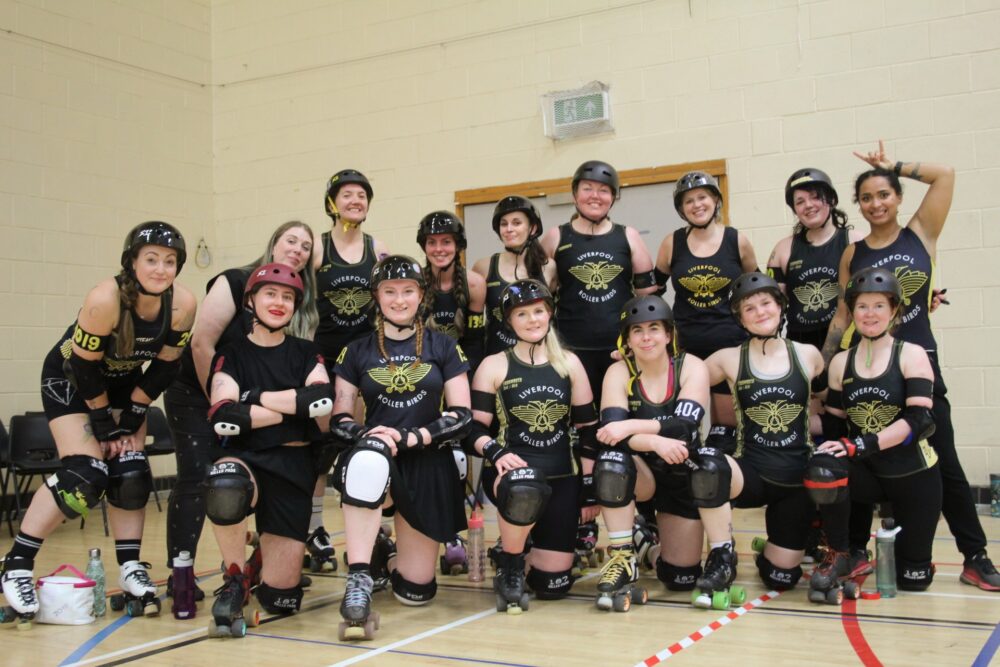

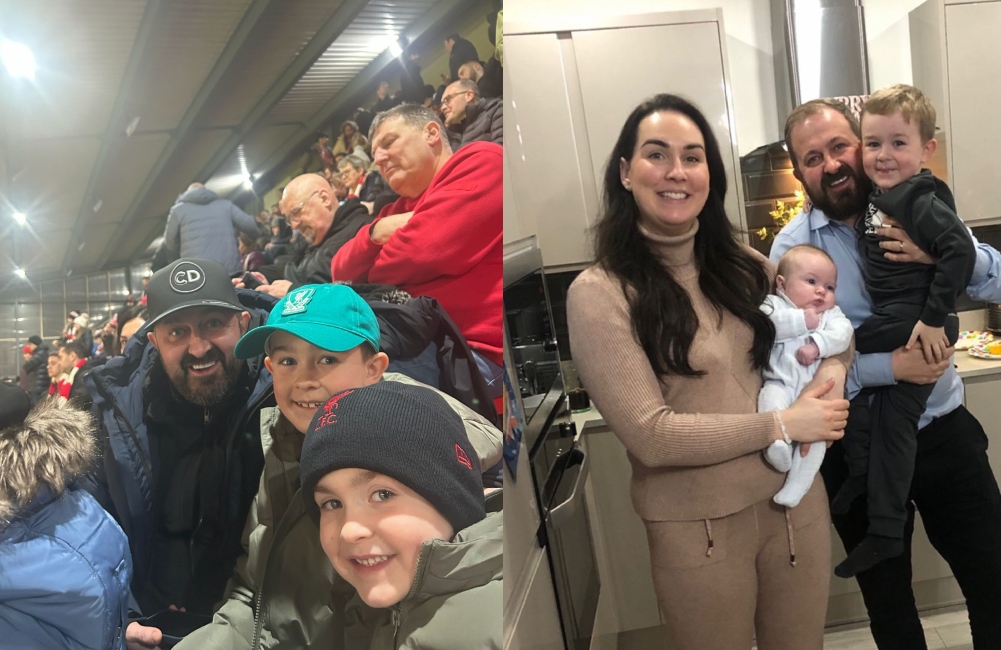



 Subscribe
Subscribe Follow Us
Follow Us Follow Us
Follow Us Follow Us
Follow Us Follow Us
Follow Us











